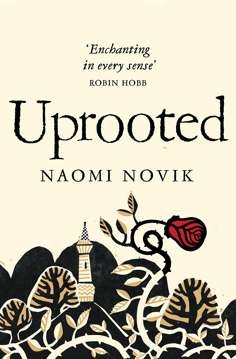
Science friction: Arthur C Clarke and Hugo awards shortlists announced
‘Good-humoured’ discussions over Clarke Award shortlist contrast with the machinations over the Hugos, which remain a battlefield in America’s culture wars


Perhaps the most revolutionary title to be nominated is Iain Pears’ Arcadia, a novel that also comes in the form of an interactive app and which has been hailed as a possible future direction for electronic publishing. It is one of six titles competing for this year’s prestigious Arthur C Clarke Award for Science Fiction, established 30 years ago with a grant from the British pioneer of the genre.
Pears’ work intertwines the story of an Oxford professor, a 15-year-old girl who finds herself in another world and a scientist from a dystopian future who creates a time machine, and is up against Becky Chambers’ The Long Way to a Small, Angry Planet, an originally self-published novel, which was longlisted for the Baileys; J.P. Smythe’s Way Down Dark, which takes place on a spaceship that left a dying Earth centuries before, and Adrian Tchaikovsky’s Children of Time, in which the last remnants of humanity follow in the footsteps of their ancestors to find a terraformed planet.






Good humour has been notably lacking at the Hugo Awards, the most prestigious honours in science-fiction, in recent years. The nominating process has become the playground of factions, where groupings with such names as the Sad Puppies and the Rabid Puppies have pooled their efforts to challenge what they perceive as years of liberal bias in the awards.
Brad Torgersen, a leader of the Sad Puppies contingent, wrote on his blog in 2015 that “we’ve seen the Hugo voting skew ideological, as [the World Science Fiction Convention] and fandom alike have tended to use the Hugos as an affirmative action award”. Membership of the World Science Fiction Convention, also known as WorldCon, costs US$40, and those members nominate the books for Hugo consideration.
The science fiction author John Scalzi has compared the Puppies to Donald Trump supporters, whose goal is to “annoy those they saw as their political opponents in the science fiction and fantasy field”.
“I think the Sad Puppies have broken the Hugo Awards, and I am not sure they can ever be repaired,” said George R.R. Martin, author of The Game of Thrones series, in the wake of the 2015 Hugos. That year, when facing slates composed totally of Puppies nominations, Worldcon members voted “no award” and no Hugo was given for Best Novella, Best Short Story, Best Related Work and Best Editors for Short and Long Form.
After this year’s Hugo Awards, however, this particular manifestation of the culture wars may have to find a new battlefield: Worldcon is expected to pass a measure to prevent just anyone from pushing a slate of names to the final nominations.
The nominations for Best Novelette at the Hugos include the Chinese science fiction writer Hao Jingfang, whose Folding Beijing looks at class struggle in a future Beijing. Hao, a doctoral student at Tsinghau University in the capital, said she was “so excited to be shortlisted” for her work, which appeared in English in Uncanny Magazine.



“Sometimes you get a literary author who thinks they are rediscovering the wheel but with Iain it’s obvious he set out to write SF: and he’s said that publicly,” said Clarke Award director Tom Hunter.
Hunter called the lineup of six books – which also includes World Fantasy award winner Nnedi Okorafor’s The Book of Phoenix, in which genetic experiment Phoenix, an “accelerated woman”, escapes from the Manhattan tower in which she has been imprisoned; and Dave Hutchinson’s Europe at Midnight, which sees intelligence officer Jim fall into a world preparing for war with another universe – “a quintessentially Clarke Award kind of a shortlist”.
“Look once and I’m sure everyone will see a choice they agree with. Look twice, and you’ll likely see a new book you want to read next. Look a third time, though, and I hope you’ll see how well all of these six books sit together, and how they represent a particular, special moment in time for UK science fiction. In other words, like all great books, this is a shortlist that rewards the more you read into it,” said Hunter.
This year’s Clarke Award judging panel features the British Science Fiction Association’s David Gullen and Ian Whates, the Science Fiction Foundation’s Liz Bourke and Andrew McKie, and Leila Abu El Hawa from the Sci-Fi-London film festival. The winner will be announced on August 24. The Hugos will be announced on August 20 at WorldCon, which takes place this year in Kansas City.
The Guardian and The Washington Post
The nominations for the best novel at the Hugos
Ancillary Mercy by Ann Leckie
The Cinder Spires: The Aeronaut’s Windlass by Jim Butcher
The Fifth Season by N.K. Jemisin
Seveneves by Neal Stephenson
Uprooted by Naomi Novik.
The Arthur C Clarke Award shortlist
The Long Way to a Small, Angry Planet by Becky Chambers
Europe at Midnight by Dave Hutchinson
The Book of Phoenix by Nnedi Okorafor
Arcadia by Iain Pears
Way Down Dark by James P Smythe
Children of Time by Adrian Tchaikovsky


